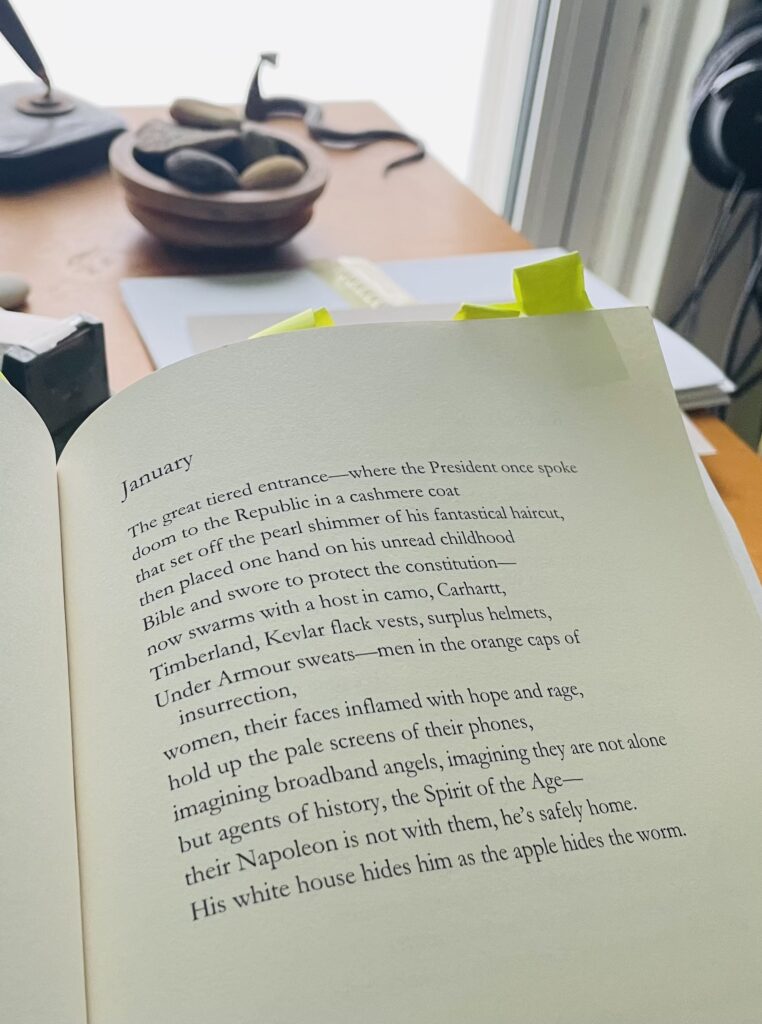Epiphany or Infamy?
January 6th has been much in the news this week. The date has become a “day of infamy” for many Americans, recalling as it does the right-wing riot the U.S. capital. In the same way that December 7th is inseparable from the attack on Pearl Harbor, January 6th has become shorthand for an attempt to disrupt the lawful transfer of power in our government.
Yet before 2021, January 6th had happy associations. It marked the Feast of Epiphany, the day when Christians in both in America and around the world celebrate the arrival of the Magi, the “Wise Men” described in the gospel of Matthew. In the recent past, January 6th would be an excuse for local television to cover quaint customs, like the baking of the “Three Kings Cake,” a sweet cake in which is hidden a tiny figure of the baby Jesus, or taking a cold water plunge (as many do in Eastern Europe); it is a day when some Catholics say a house blessing, or hold a procession through the house with figures from the creche. Some Christians wait until Epiphany to give gifts–a tradition common in Latin America, where the Día de los Tres Reyes Magos is a day of feasting and celebrating. At bare minimum many of us preserve the date as a time to mark the end of the season by taking holiday decorations down and putting the tree out on the corner for city pickup.
For years in my own family we had the custom of baking and decorating an elaborate gingerbread house which was on display throughout the month of December; on the evening of Epiphany we would put a votive candle in it and set it outside in the snow as an offering to the squirrels and birds. I wrote a poem about this custom:

For me this poem commemorates a moment of what Robert Bly called “winter privacy”–a spiritual mood created by the darkness and snowy silence of January. It is no accident that we celebrate Christmas when we do (despite the fact that December 25th has no connection to Jesus’ actual birth date). We need rituals of hope and light when the sun sets early and the nights are long and cold.
Unfortunately, these charming associations with January 6th have been overwritten by disturbing images of angry citizens smashing the doors and windows of the U.S. capital, beating police officers and rifling through the offices of elected representatives, calling for their execution. The event itself and the subsequent turmoil surrounding it–the funerals of the victims, the trials of the perpetrators, the January 6th Commission’s grim investigations, and the efforts by others to rewrite that sordid history for political gain–have left us with memories of violent disorder and the fear of more to come.
Violence, of course, was also part of the Epiphany story. According to the Gospel of Mark, when the Wise Men first reached Israel they appeared before Herod, the King of the Jews, and they told him they were looking for “where the king of the Jews had been born,” an event predicted by the star they were following. Herod understandably felt threatened by this: he slyly told them to go ahead and seek out this royal child and to report back to him when they had found him. But after finding Jesus and honoring him, the Wise Men didn’t go back to Jerusalem: they slipped away into the night. The Gospel of Mark then says, “When Herod realized that he had been outwitted by the Magi, he was furious, and he gave orders to kill all the boys in Bethlehem and its vicinity who were two years old and under, in accordance with the time he had learned from the Magi.” The horror of this massacre of innocent children has echoed down through the ages.
So perhaps our terrible associations with January 6th are not so new after all. The Wise Men, being wise, knew that some men will do anything to hold on to power. And this narcissistic and bloodthirsty desire runs rampant in our world right now.

All poems are from EMPIRE, by James Armstrong (Shipwreckt Books, 2023). Click on image to purchase.
Particularly poignant and well written. Thanks for the reminder. Always be kind. Love you Jim
Good poems, Jim. Nice historical perspective in the prose. Sign me up!